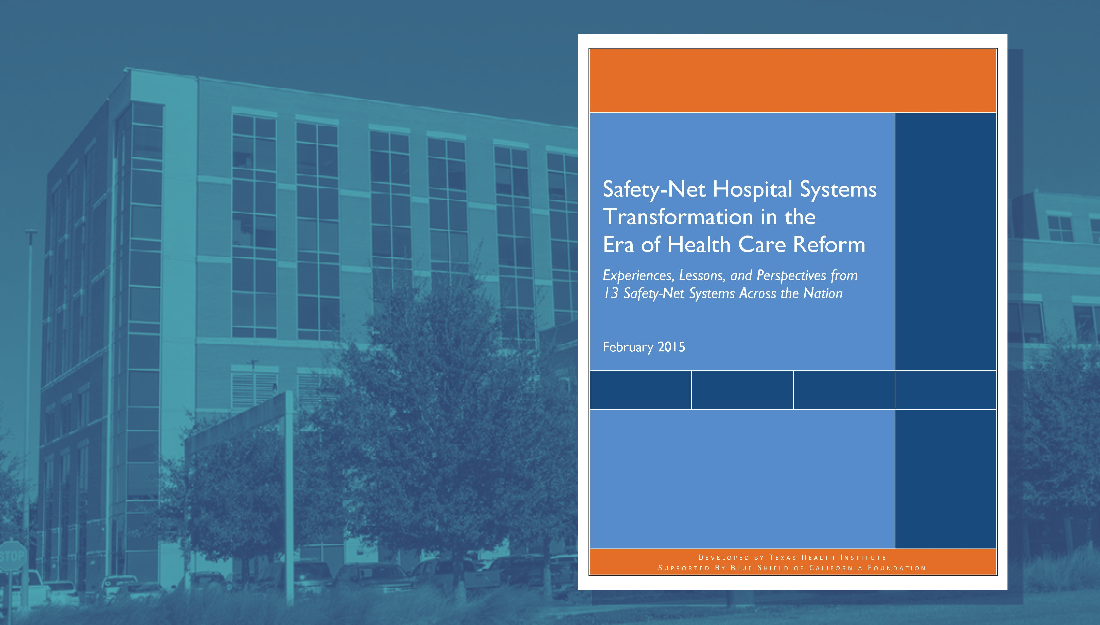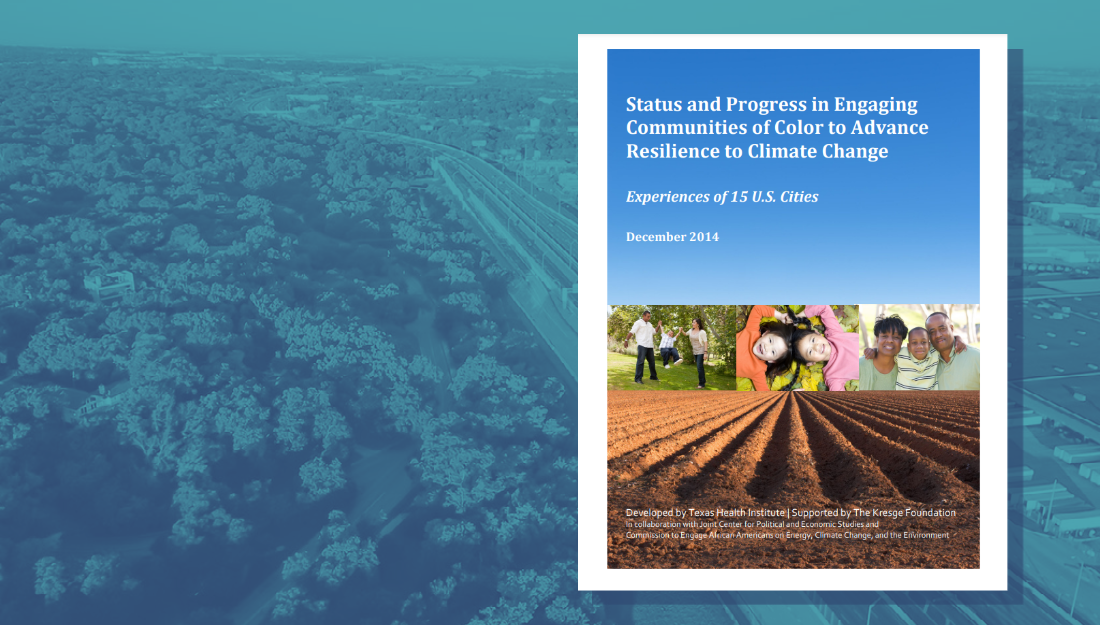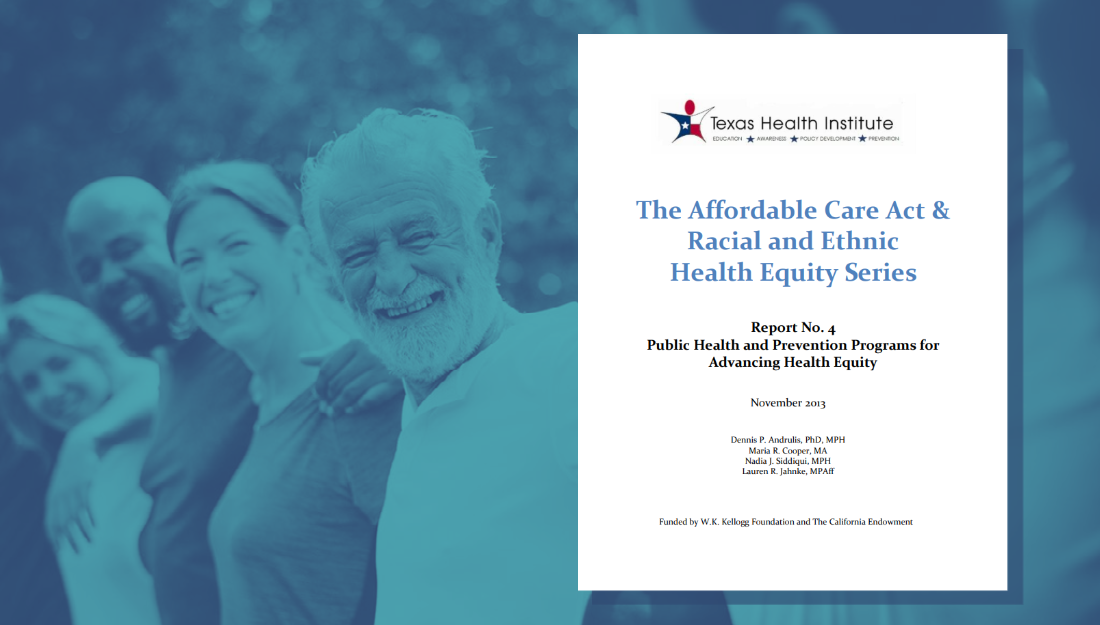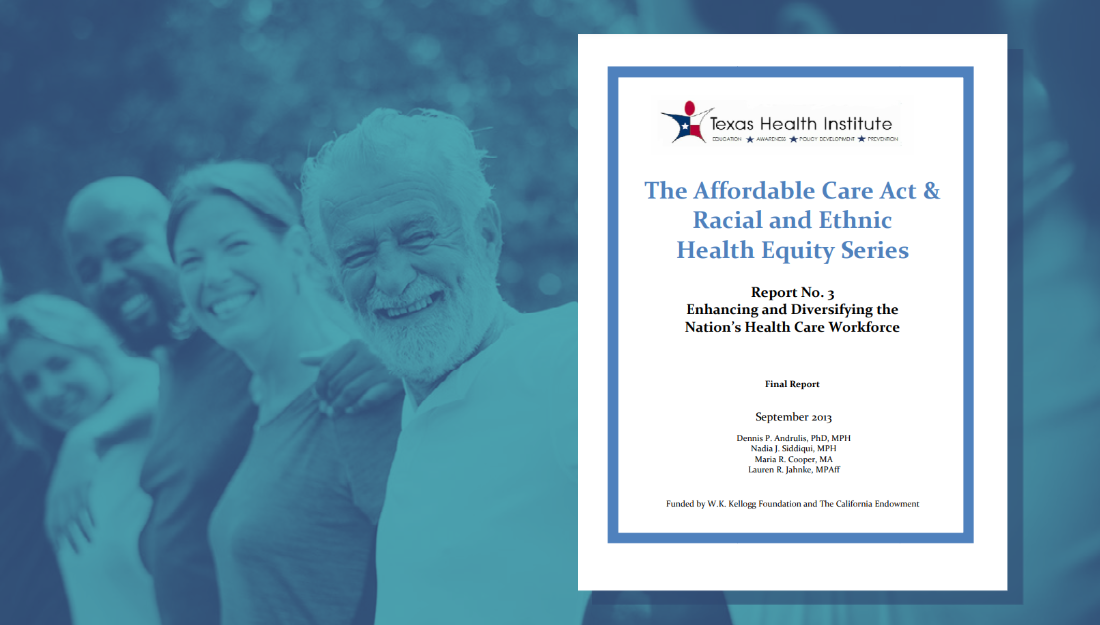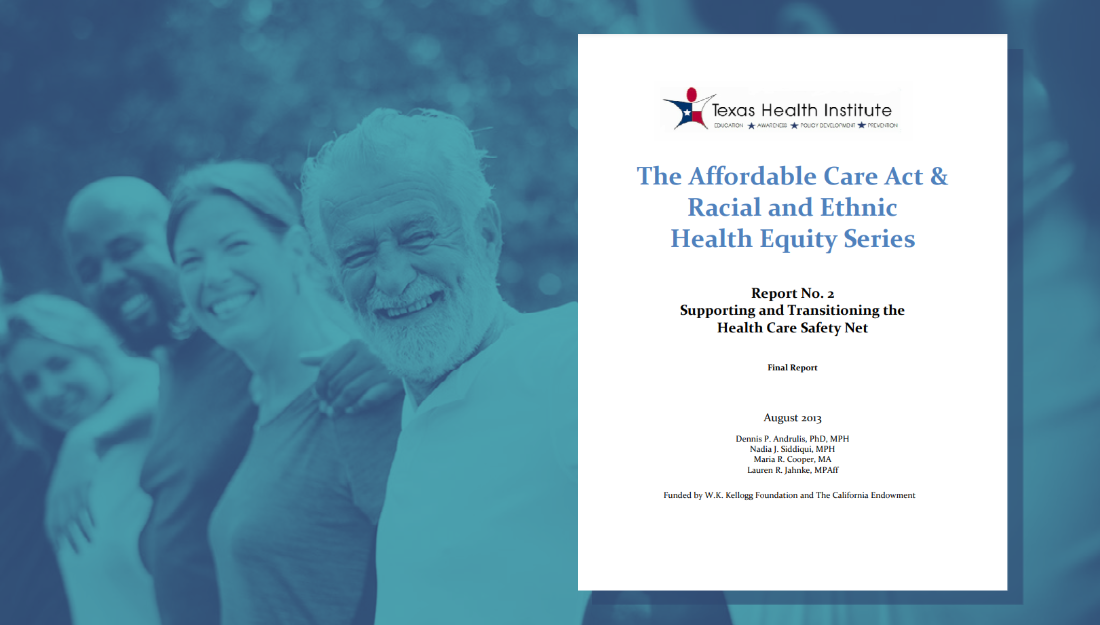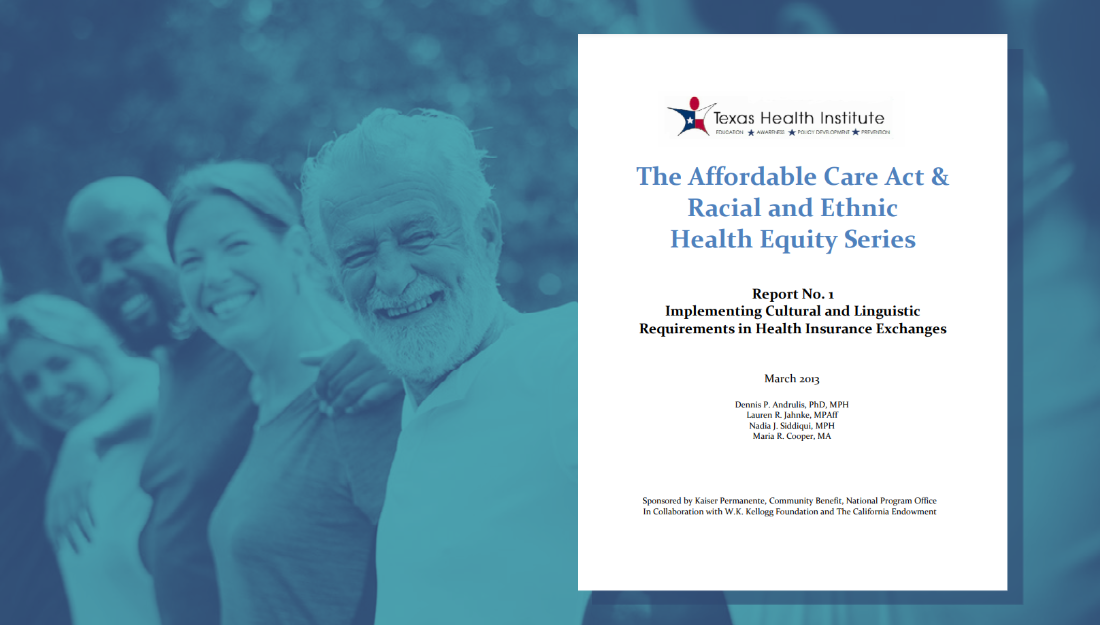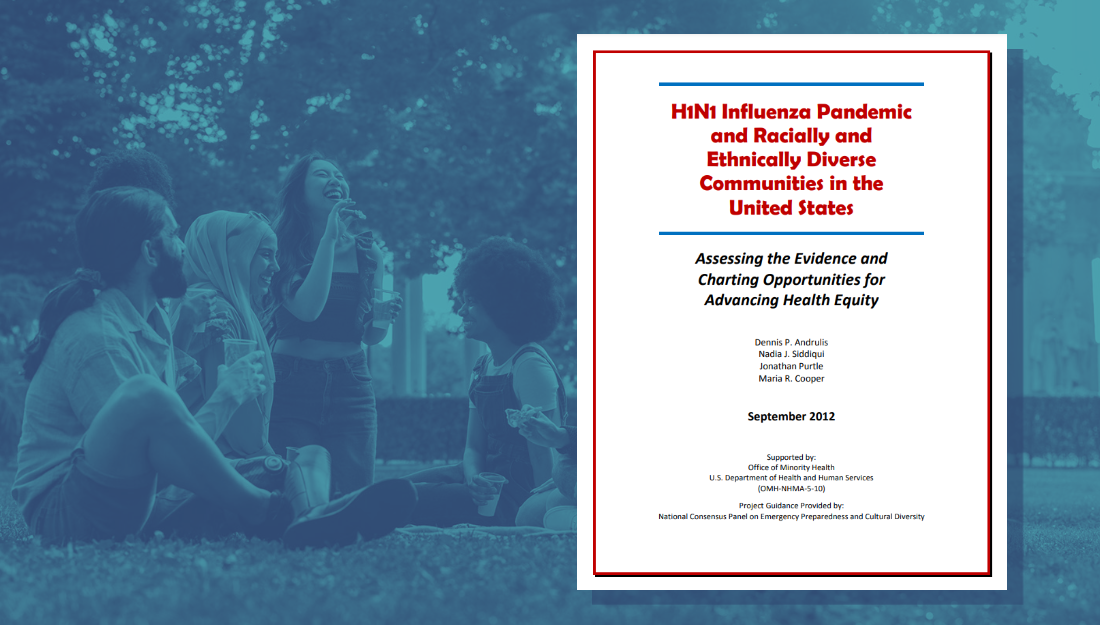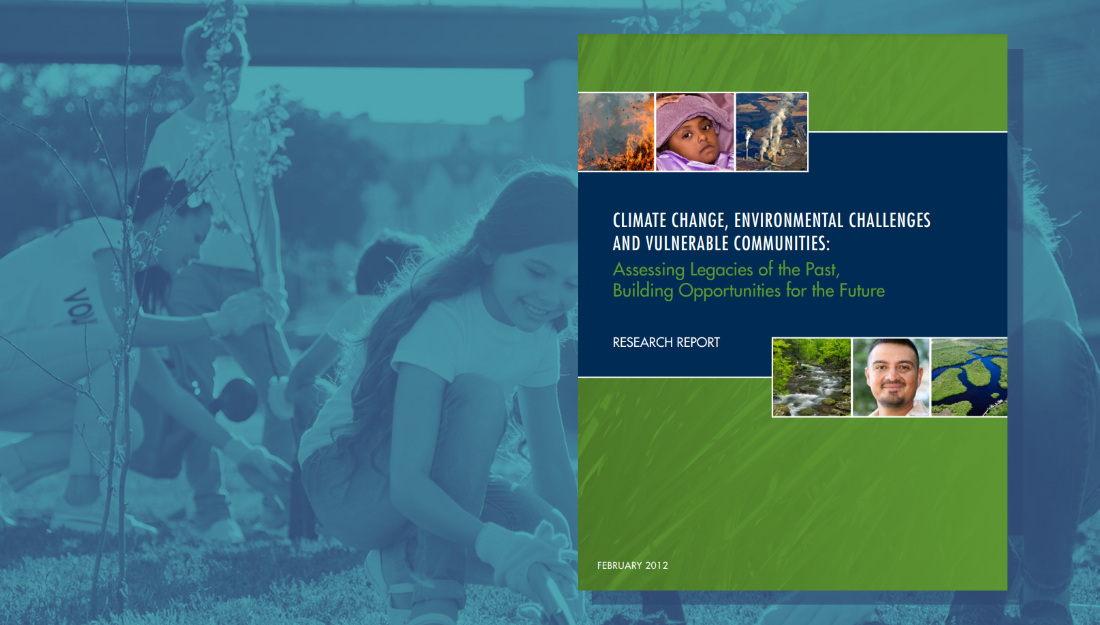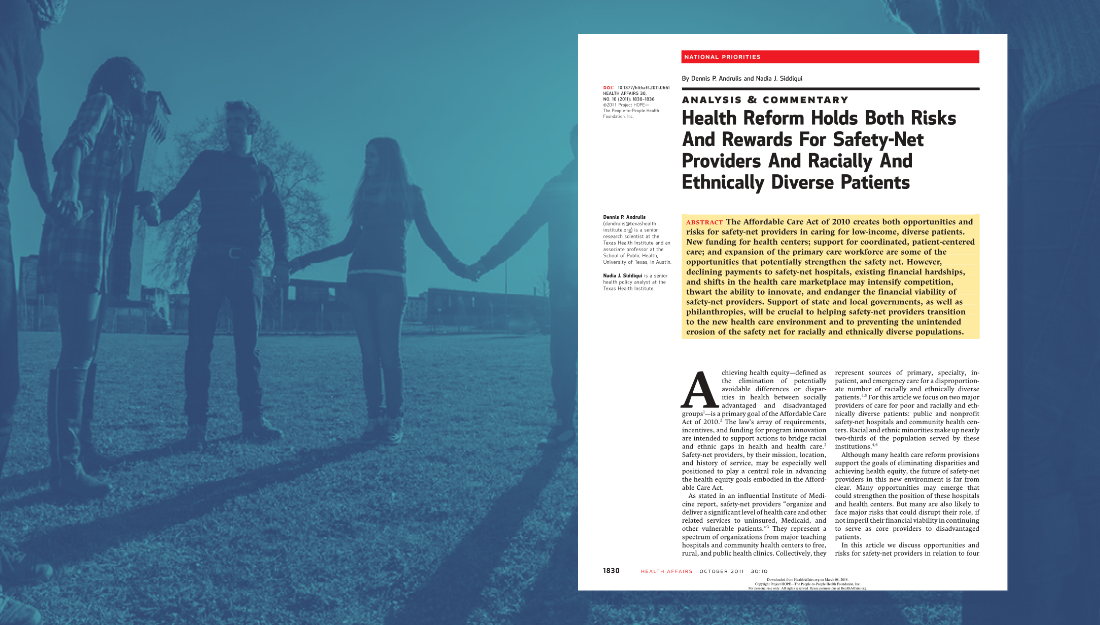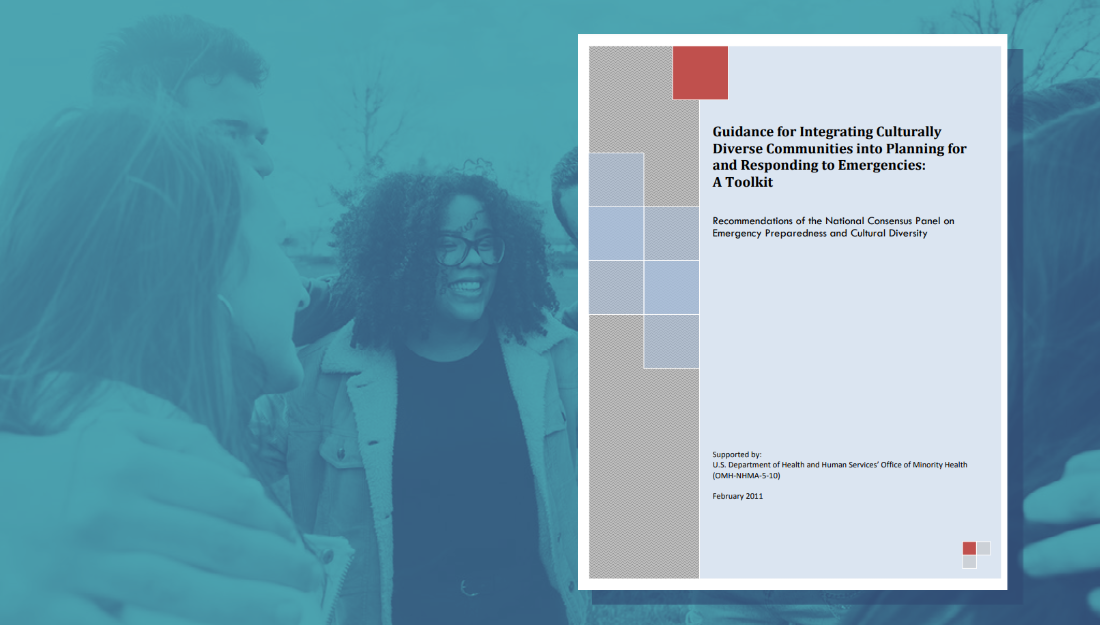Safety-Net Hospital Systems Transformation in the Era of Health Care Reform
The Affordable Care Act (ACA) of 2010 has committed considerable dollars to help safety-net hospital systems build their capacity, create efficiency, enhance quality, and ultimately transform to improve the health
Status and Progress in Engaging Communities of Color to Advance Resilience to Climate Change
A growing body of evidence suggests that low income communities of color are especially
susceptible to the adverse effects of climate change, often facing greater morbidity and mortality than the general
ACA & Health Equity Series Report No. 4: Health and Prevention Programs for Advancing Health Equity
The United States spends more on health care than any other industrialized nation, yet this
greater spending does not translate to better health or life expectancy.
ACA & Health Equity Series Report No. 3: Enhancing and Diversifying the Nation’s Health Care Workforce
Research to date reveals that the lack of diversity in the health care workforce is a significant
challenge to meeting the needs of racially and ethnically diverse populations who experience clear
and
ACA & Health Equity Series Report No. 2: Supporting and Transitioning the Health Care Safety Net
The nation’s health care safety net is a patchwork of institutions, financing, and programs that
disproportionately serve low-income, uninsured, and racially and ethnically diverse populations.
ACA & Health Equity Series Report No. 1: Cultural and Linguistic Requirement in Health Insurance Exchanges
One of the centerpieces of health care reform as presented in the Affordable Care Act (ACA) is the
creation of health insurance exchanges, also referred to as marketplaces, that will offer
H1N1 Influenza Pandemic and Racially and Ethnically Diverse Communities in the United States
Racially and ethnically diverse communities have historically been disproportionately affected by disasters and public health emergencies in the United States.
Climate Change and Diverse Communities: Assessing Legacies of the Past, Building Opportunities for the Future
Vulnerability to climate change differs substantially across regions, communities and even households, and the communities that are most vulnerable to climate change also face poverty, health disparities, and other social
Health Reform Holds Both Risks and Rewards for Safety-Net Providers and Racially and Ethnically Diverse Patients
The Affordable Care Act of 2010 creates both opportunities and risks for safety-net providers in caring for low-income, diverse patients.
Guidance for Integrating Culturally Diverse Communities into Planning for and Responding to Emergencies: A Toolkit
The disproportionate destruction and costs in lives and quality of life for racially and ethnically diverse communities resulting from Hurricane Katrina and other recent public health events have served as


